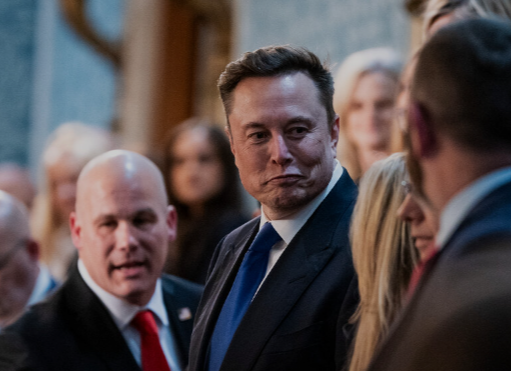Sweeping Changes to Verification System Raise Concerns for Seniors, Disabled Americans
WASHINGTON — The Trump administration has directed the Social Security Administration (SSA) to rapidly implement sweeping changes to its phone services, bypassing the usual lengthy review process and sparking widespread concern among lawmakers and advocacy groups.
Leland Dudek, the agency’s acting commissioner, confirmed Monday that the drastic cutbacks—set to take effect in just two weeks—were initiated at the White House’s request. Speaking to advocacy groups that support Social Security recipients, Dudek acknowledged the unusual speed of the rollout.
“The reason we’re on this timeline is because we received a request from the White House. The leadership above me believes that we should do a rapid rollout,” Dudek said, according to three sources familiar with the meeting.
The changes, set to take effect March 31, will eliminate the ability for Social Security claimants to verify their identities over the phone. Instead, anyone unable to use the SSA’s online portal will be required to visit a field office in person—posing a significant burden on seniors, disabled individuals, and rural residents.
The decision has drawn sharp criticism from lawmakers and advocacy groups, including the AARP, which warned that the move will force vulnerable Americans to endure long wait times, struggle with scheduling appointments, or even take time off work just to access their earned benefits.
“With Americans already waiting hours to get connected with Social Security on the phone, it is outrageous that, under this new policy, older Americans—especially those in rural areas—will now have to call, wait on hold, make an appointment, or even take a day off work to claim the benefits they have worked for and earned,” said Nancy LeaMond, AARP’s chief advocacy and engagement officer, in a letter to Dudek.
Trump Administration Claims Move Will Reduce Fraud
The administration justifies the change as a fraud-prevention measure, estimating that it could save as much as $100 million annually. However, that figure amounts to less than a tenth of a percent of the SSA’s total budget, raising questions about whether the abrupt policy shift is truly driven by cost savings or broader political motivations.
Internal SSA documents suggest that the logistics of the change remain unclear. An undated draft “Emergency Message” obtained by HuffPost notes that specific instructions for handling claimants abroad—who may not be able to access the SSA website or visit a U.S. field office—have yet to be developed.
“In normal times, something like this would take two years to roll out,” Dudek reportedly said during Monday’s meeting.
Frontline SSA employees have raised additional concerns about the lack of preparation. A field office worker told HuffPost that they had not received any training related to the changes, despite the expectation that they will dramatically increase in-person visits.
SSA officials have since said that training would begin this week, but uncertainty remains over whether field offices—already strained by staffing shortages—can handle the surge in demand.
Tech Leaders Express Alarm Over Government Overreach
Amid growing concern over the move, Google CEO Sundar Pichai has spoken out against the administration’s handling of Social Security access, warning of the broader implications for technology and public services.
“This decision disproportionately harms vulnerable populations who rely on remote access to government services,” Pichai said in a statement Monday. “Technology should be used to improve accessibility, not restrict it. A system where millions are suddenly required to show up in person to verify their identity is a step backward.”
Pichai’s comments reflect Silicon Valley’s broader apprehension over how the administration is restructuring federal agencies, particularly when it comes to data access, digital identity verification, and personal privacy protections.
Ties to Musk’s ‘Government Efficiency’ Department Spark Controversy
Dudek, who was installed by Trump after career SSA officials refused to grant Elon Musk’s newly created “Department of Government Efficiency” access to confidential Social Security data, has quickly emerged as a staunch Trump loyalist.
Musk and Trump have repeatedly claimed, without evidence, that Social Security makes millions of fraudulent payments—including to deceased individuals. The push to cut off phone-based verification has raised suspicions that this is part of a broader effort to restrict benefits under the guise of combating fraud.
The administration has already faced legal challenges over its attempt to grant Musk’s department access to sensitive personal data on 70 million Social Security beneficiaries. After a federal judge blocked the move, Dudek threatened to shut down the agency altogether, jeopardizing payments for millions of Americans. He only backed down when the court explicitly ordered him not to proceed.
Dudek’s Pattern of Retaliation
Dudek’s actions have also extended beyond Social Security policy into political retaliation.
After Maine Gov. Janet Mills (D) refused to comply with Trump’s directive banning transgender athletes from girls’ sports, Dudek retaliated by canceling the SSA’s vital records contracts with the state of Maine—a decision that was only reversed after significant backlash.
More recently, his rapid-fire policy changes suggest he is acting with Trump’s full backing. While acknowledging that the verification overhaul could cause major disruptions, Dudek told stakeholders, “If this disrupts things for citizens to the point of being untenable, we’ll roll it back.”
The SSA has not provided further clarification on whether the changes could be reversed if public backlash intensifies.
Congressional Pushback and the Road Ahead
With millions of Americans potentially affected, congressional Democrats and advocacy groups are pushing for immediate intervention.
“This is reckless and completely unnecessary,” said Sen. Ron Wyden (D-Ore.), chair of the Senate Finance Committee. “We will be looking at every available option to stop this.”
The White House, however, has remained defiant. Press Secretary Karoline Leavitt offered only a brief statement, insisting that ‘any American receiving Social Security benefits will continue to receive them’—but without addressing the logistical hurdles the new policy creates.
With the March 31 deadline approaching, the question now is whether the administration will face enough political and legal pressure to delay or reverse the changes—or whether millions of Americans will be forced into a bureaucratic nightmare just to access the benefits they’ve earned.



